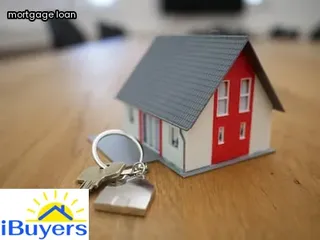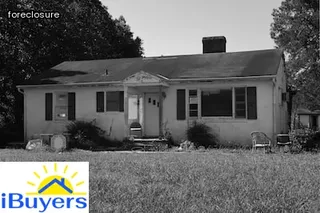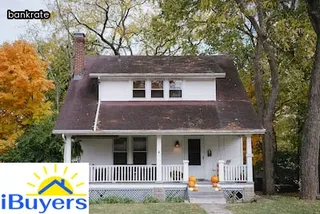Short sales can be an excellent option for homeowners looking to buy a new home. Knowing what to expect and how to navigate the process is essential to making sure you get the best deal. First, it's important to understand that a short sale is when a homeowner agrees to accept less than what they owe on their current mortgage in order to pay off the loan and sell their home.
This can be beneficial for both parties involved, as it allows the seller to avoid foreclosure and helps the lender avoid additional losses associated with a foreclosure sale. To begin, you'll need to contact your lender and explain why you are unable to pay off your loan in full. Be prepared to provide proof of financial hardship such as documents detailing income loss or medical bills.
You'll then need to negotiate with the lender on a sale price that will cover the remaining balance on your loan and satisfy any other liens that may be attached. It's important to keep in mind that if you're attempting to purchase another home at the same time, you must qualify for a new loan before closing on your short sale. Once all parties have agreed upon terms, it's essential that all paperwork is filled out correctly so as not to delay or invalidate the transaction.
Lastly, make sure you hire an experienced real estate attorney who can ensure everything goes smoothly from start to finish. By knowing what short sales entail, understanding how they work, and being aware of potential pitfalls along the way, homeowners can confidently buy and sell their homes through this process.

Short selling your home and buying another can be a great way to benefit from the current housing market. By short selling, you can avoid costly foreclosure proceedings and potentially save your credit rating.
Additionally, short sales allow homeowners to purchase another property at a reduced price. When a homeowner chooses to short sale their current home, they can negotiate with the lender for a lower amount than what is owed on the loan.
This allows them to pay off the remaining balance and use any extra cash saved from the sale towards their next house. Furthermore, by taking advantage of this process it can allow homeowners to buy more house for their money in comparison to traditional sales.
This could lead to substantial savings when it comes time for closing costs, down payments, and other related expenses. Short sales are also beneficial because they don’t take as long as traditional sales which allows homeowners to quickly move into their new home without having to wait around for long periods of time.
A short sale is a process in which a homeowner sells their property for less than the amount they owe on their mortgage. The difference between what is owed and the sale price of the home is then negotiated with the lender, who agrees to forgive the remaining debt.
To understand this process better, it's important to know what is involved in a short sale, how a potential buyer can be found, and how to negotiate with the bank. It's also beneficial to know what documents are required for a successful short sale as well as how long it typically takes from start to finish.
With this information in hand, homeowners will have all they need to begin their journey of selling their current home and purchasing another through a short sale.

Negotiating a successful short sale can be daunting, but with the right information and resources, it is achievable. There are several steps you must take when attempting to negotiate a successful short sale.
Firstly, you must make sure that you have an experienced real estate agent who is knowledgeable about the process of a short sale and can guide you through it. Secondly, you should contact your lender and explain why you need to short sale your home, and what terms they may be willing to accept in order to facilitate the transaction.
Thirdly, it is important to research comparable homes in your area to determine the value of your property before submitting an offer on another home. Finally, once all parties have agreed upon a price for both properties, set up the closing date for both properties at the same time so that one does not close before the other.
Following these steps will help ensure that you are able to navigate a successful short sale and purchase another home with ease.
Short selling a home can be an attractive option for those looking to buy another home, but homeowners need to weigh the pros and cons before making any decisions. On the plus side, short selling can help reduce or eliminate debt owed on the original mortgage and make it easier to buy a new home sooner.
Additionally, short selling may also help prevent foreclosure and provide more financial security in the future. The downside of short selling is that it will negatively impact your credit score for several years, making it difficult to borrow money or obtain new credit.
Furthermore, even if you're current on your mortgage payments, lenders may still require you to bring cash to closing when buying a new home. Finally, there are additional costs associated with short selling such as deed preparation fees and agent commissions that must be taken into consideration.

The impact of a short sale on a credit score can be significant. While the exact amount of points that may be deducted is hard to predict, it is typically a large number due to the fact that the lender has accepted less than what was owed on the loan.
It should also be noted that this will remain on an individual's credit report for seven years, making it difficult for them to obtain loans or mortgages during this time. Furthermore, it is important to consider that lenders may not view you in a favorable light when attempting to acquire financing after completing a short sale.
This means that even though your credit score may improve over time, it could still take several years before lenders are willing to extend new financial offers.
It is possible for homeowners to rent or buy back their homes after a short sale, although the process can be complex. Depending on the unique circumstances of the homeowner and their lender, different options may be available.
In some cases, a homeowner may be able to negotiate with the lender to rent or purchase back their home. Furthermore, lenders may offer special programs that allow homeowners to buy back their property after a short sale.
Homeowners should research these options and discuss them with their lender if they wish to rent or buy back their home. It is important to remember that individual lenders may have specific qualifications and conditions attached to such offers.
Ultimately, understanding how to successfully navigate the process of renting or buying back a home after a short sale is key for any homeowner in this situation.

Understanding the real estate market and its trends is a critical part of successfully short selling your home and buying another. Knowing when to enter the market, what properties are available, and how long it will take to complete a sale are all important factors in this process.
Knowing what the current market trends are can help you decide if short selling is the right option. You should also be aware of any potential changes that could impact your decision, such as interest rate increases or decreases, or changes in local laws.
Additionally, understanding the different types of financing available for short sales can help you make an informed decision on whether or not this is the right move for you. Investing time into researching the real estate market and its trends may seem overwhelming at first, however doing so can save you from costly mistakes later on.
When it comes to avoiding foreclosure, a short sale is often seen as the best option. It allows homeowners to sell their home for less than what they owe on the mortgage, and in many cases avoid foreclosure altogether.
When it comes to deciding if a short sale is preferable or not, there are several factors that need to be taken into consideration. Financial stability is an important factor; if the homeowner has enough saved up to buy another home after the short sale, then it may be the best route.
The amount of debt must also be considered; if the homeowner owes more on the mortgage than what they can get from selling their home, then a short sale may be the only viable option. Additionally, credit score should also be taken into account; since a short sale will still have an effect on one’s credit score, it’s important to make sure that this effect won't be too detrimental.
Finally, time can also play a role; if foreclosure proceedings have already begun against the homeowner, then a fast-paced short sale process may be necessary in order to avoid foreclosure and protect their credit score.

A short sale can have an effect on a homeowner's ability to obtain a mortgage in the future. Lenders may consider the homeowner's credit score and history of missed payments when determining eligibility for a loan, so it is important for homeowners to understand how a short sale could affect their ability to purchase another home later.
For example, if the lender reports the short sale as a “settled for less than full balance” account, this might appear on their credit report and potentially lower their credit score. Additionally, lenders can also ask questions about any past foreclosure or short sale during the loan application process.
As such, it is important that homeowners take steps to ensure that the short sale does not damage their creditworthiness in the eyes of potential lenders. It is also beneficial for homeowners to research lenders who specialize in mortgages for those with a prior history of foreclosure or short sale; these lenders often have more flexible requirements that may be more conducive to someone looking to purchase another home after a successful short sale.
Navigating the negotiation process during a short sale can be daunting for a homeowner, but it doesn't have to be. Having a clear and comprehensive plan for the process is essential to ensuring success.
To start, it's important to be aware of market conditions and trends, both locally and nationally. It's also necessary to understand the laws governing short sales in your state.
Additionally, having an experienced real estate agent on your side who understands the nuances of short sale negotiations can help you make more informed decisions. Once you've laid the groundwork, it's time to begin the negotiation process by assessing your home's current market value and determining if a lender will accept a lower amount than what is owed.
With this information in hand, you'll be better able to negotiate with potential buyers or lenders over terms such as closing costs and loan forgiveness. Finally, once all parties have agreed upon a price, it's important to ensure that all paperwork is properly completed and any contingencies are met before signing off on the deal.
By taking these steps into account when navigating the negotiation process during a short sale, homeowners can successfully purchase their next home while ensuring their financial security.

Before beginning the short sale process, homeowners should consider if this is the most beneficial option for their current situation. They should ask themselves if they have enough equity in their home to make a short sale worthwhile, and if they can afford to pay off any deficiencies that may arise from the sale.
Homeowners should also inquire about the potential tax implications of a short sale, as well as any potential fees associated with the process. Additionally, it is important to research local real estate laws and regulations to ensure the homeowner is aware of all applicable laws and guidelines.
Finally, homeowners should speak with an experienced real estate attorney or financial adviser who can provide guidance on how best to proceed with a short sale.
Short sale transactions can be complicated and stressful, but having the right strategies in place can make the process a lot smoother. One important factor to consider is how to effectively deal with banks during a short sale.
Banks are the central participants in this kind of transaction, and understanding their expectations and motivations will help you navigate through the process. Communication is key—letting banks know your preferences and keeping them informed of any new developments or changes should be done as soon as possible.
Additionally, it’s important to do your research beforehand so that you can be well-prepared for negotiations with banks. Understanding different short sale structures, as well as any legal implications associated with them, will give you an edge when you’re discussing terms with banks.
Lastly, patience is essential—banks may take some time to review offers and respond accordingly.

When it comes to selling a home through a short sale, understanding who pays costs associated with the transaction is an important part of the process. Generally, the seller is responsible for paying any outstanding liens or mortgages on the home and other costs associated with closing such as real estate commissions, title closing fees, and deed preparation fees.
Depending on where you live and your mortgage agreement, you may also be responsible for paying additional closing costs such as transfer taxes or homeowner association dues. Additionally, lenders are often willing to cover some of the costs associated with selling a home through a short sale to encourage homeowners to complete the process.
It is important to keep in mind that each situation is unique and that all parties involved must agree before any terms can be finalized. It is essential to work with an experienced real estate agent who can help guide you through this process and make sure that all costs are clearly understood prior to signing any contracts.
When considering a short sale of your home, it is important to be aware of the potential pitfalls that may arise. A short sale involves selling your home for less than the amount you owe on your mortgage, and it requires the approval of your lender.
It is also important to understand that a short sale is an alternative to foreclosure, so if you are unable to make payments on your loan, you should weigh all of your options before making any decisions. Additionally, a short sale could affect your credit score and ability to obtain financing in the future, so it is essential to consider the long-term implications before proceeding with a short sale.
Finally, you will need to weigh the benefits and risks of any offers that come in from potential buyers - making sure they are reasonable and accurate - as this will impact whether or not your lender approves the transaction. Taking all of these potential pitfalls into account is essential when deciding whether or not a short sale is right for you.

When it comes to short selling a home, many people are unaware of the fact that family members may be eligible to purchase the home through this process. Generally, lenders do not prefer the idea of a family member buying the home since they will likely receive a lower amount than if they sold it on the open market.
However, if all other options have been exhausted and there is no other way for you to sell your home, then lenders may allow a family member to buy it. In order for a family member to be considered eligible for purchasing the home through a short sale, they must provide proof of income, creditworthiness, and ability to make payments on time.
Additionally, lenders must approve them as qualified buyers and agree that offering them the property at a reduced price is in their best interest. It is also important to note that in some cases, lenders may require family members who wish to purchase the property through short sale to put down some sort of earnest money deposit in order to show their commitment and prove they are serious about buying the home.
Short selling your home is a viable option for homeowners who are struggling to pay their mortgage debt. By doing a short sale, you can get out of your existing mortgage debt and buy another home.
While it may seem daunting, understanding the process and knowing what to expect can make it easier. First, you'll need to determine if you meet the eligibility requirements for a short sale.
You must be facing financial hardship and have an unaffordable mortgage balance that is higher than the sale price of your home. Once you meet all the requirements, you'll need to find a qualified real estate agent who specializes in short sales.
The agent will then negotiate with your lender on your behalf and submit paperwork to them outlining the terms of the sale. After all necessary documents have been submitted, you'll have to wait for approval from the lender before moving forward with the short sale process.
Although it may take time, once approved, you can start looking for a new home while simultaneously completing the short sale of your current property.

When a homeowner is unable to complete a short sale of their home, the lender may pursue a delinquency or deficiency judgment. A delinquency judgment occurs when the homeowner fails to make payments on their mortgage, in effect defaulting on the loan.
This can negatively affect the homeowner's credit score and may even lead to foreclosure. A deficiency judgment is when the lender decides to go after any remaining balance that was not paid off through the sale of the home.
In cases where a property sells for less than what was owed, this remaining balance is known as a "deficiency". The lender has the right to pursue a deficiency judgment against the homeowner, which could involve collection efforts or legal action.
It is important for homeowners to understand these potential outcomes before they attempt to short sale their home and buy another.
Yes, it is possible to sell your house and buy another one at the same time. A short sale is a process where you can sell your home for less than what you owe on the mortgage and use the proceeds to purchase your next property.
This comprehensive guide for homeowners will provide tips on how to successfully do a short sale and buy another house at the same time. The first step in this process is to contact your lender and inquire about their specific requirements for a short sale.
Many lenders will require an appraisal of the home, proof of hardship, and a buyer that is approved by the lender. It's important to discuss all of these details with your lender before proceeding so that you are aware of any additional steps involved in the process.
Next, consult with a real estate professional who specializes in short sales and make sure they have experience working with lenders in your area as they can be invaluable resources when it comes to navigating this process. Lastly, make sure you understand all of the financial implications associated with a short sale before signing any paperwork or making any decisions regarding your current or future homes.
With preparation and knowledge, it is possible to successfully do a short sale and buy another house at the same time!.

If you are considering a short sale of your current home and want to buy another, understanding how long you will need to wait before becoming eligible for a conventional loan is important. The good news is that the waiting period for a conventional loan after a short sale has been reduced in recent years.
Typically, you will need to wait two to three years after the completion of the short sale before being able to apply for most conventional loans. However, exceptions can be made if extenuating circumstances are present.
Additionally, some lenders may still require more than three years of waiting under certain circumstances even if accepted by another lender. To find out exactly how long you may have to wait, speak with your lender or financial advisor and discuss your individual situation.
A short sale on a home can be an attractive option for homeowners looking to move, but it is important to understand the potential downsides. A short sale is risky because the homeowner may not be able to negotiate a favorable outcome with their lender.
If the lender does not agree to the terms of the sale, the homeowner may end up owing money on their loan. Additionally, a short sale can have an adverse effect on a homeowner’s credit score, making it difficult for them to secure financing for another home in the future or qualify for other financial products.
Ultimately, it is important for homeowners to fully understand the risks associated with a short sale before making any decisions.
Yes, a homeowner can make money on a short sale. Short sales are an attractive option for homeowners looking to sell their house quickly and at market value.
They provide the ability to buy another home without having to pay additional fees or commissions typically associated with traditional real estate transactions. With the right guidance and knowledge, a homeowner can successfully manage a short sale and make money in the process.
The key is understanding all of the steps involved in the short sale process and working with knowledgeable professionals who know how to navigate it. This comprehensive guide will help you determine if a short sale is right for you, walk through each step of the process, and learn how to maximize your profits when closing on your new home.
A: Yes, you may be able to use a conventional mortgage to purchase another home after you have short sold your current one. However, there are certain requirements that must be met in order for this to happen. These include having an acceptable credit score, meeting the income and debt-to-income ratio (DTI) requirements of the lender, and obtaining a competitive interest rate on your new home loan. To ensure that you are getting the best deal possible on your new mortgage, it is important to shop around with different lenders and compare their mortgage rates, fees, and closing costs before making your final decision.
A: Yes, in some cases it may be possible to short sell your house and buy another one as an alternative to foreclosure. However, this option should only be taken after careful consideration of the potential financial implications, since it could have a negative impact on your credit score.
A: Yes, it is possible to short sell your house and buy a new one without engaging in any fraudulent activity. However, as with any real estate transaction, you should be aware of potential risks and follow the laws regarding homeownership. Additionally, if you suspect that you have been defrauded in a real estate transaction, contact an attorney.